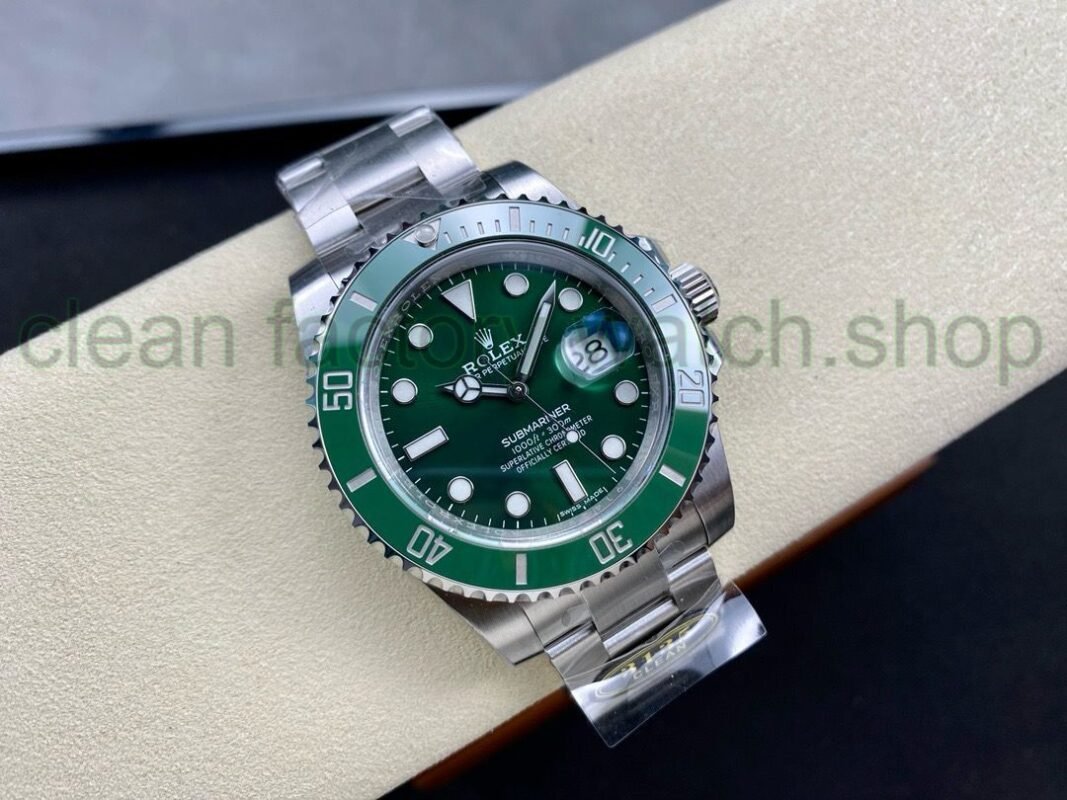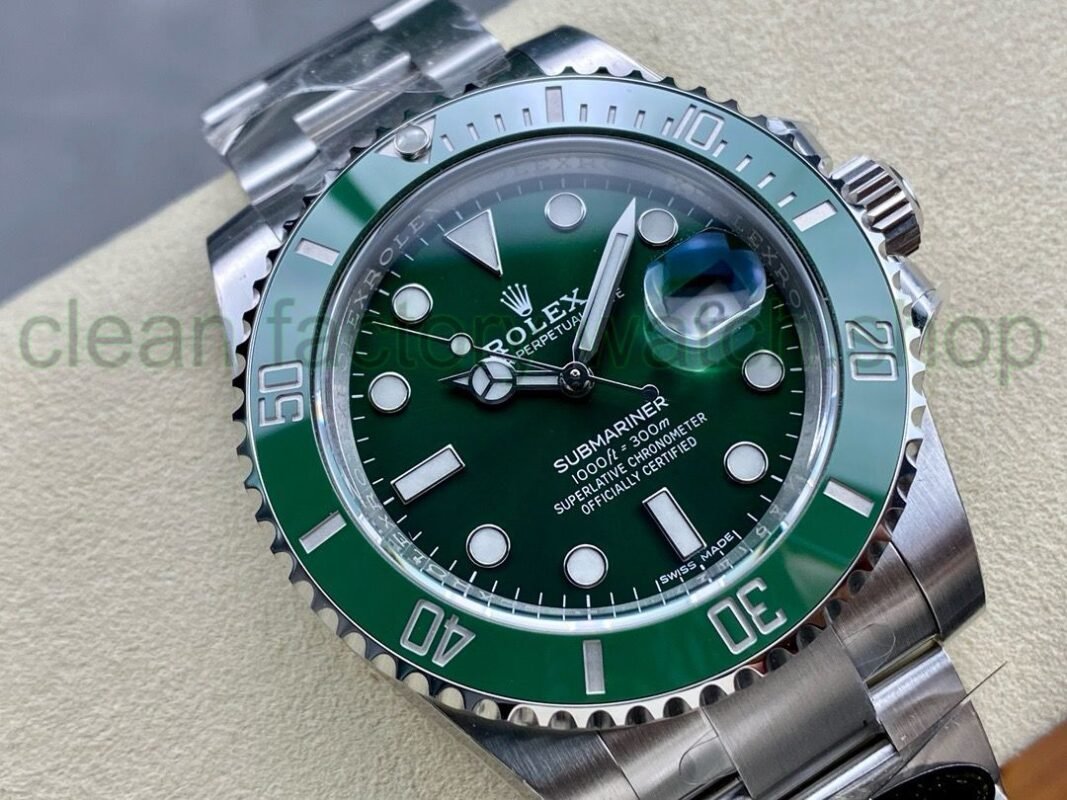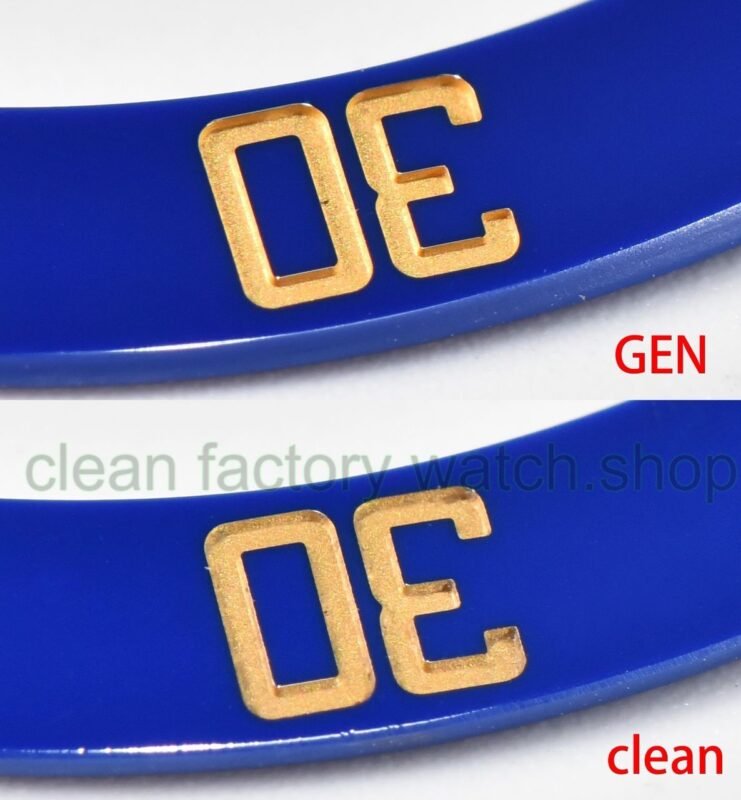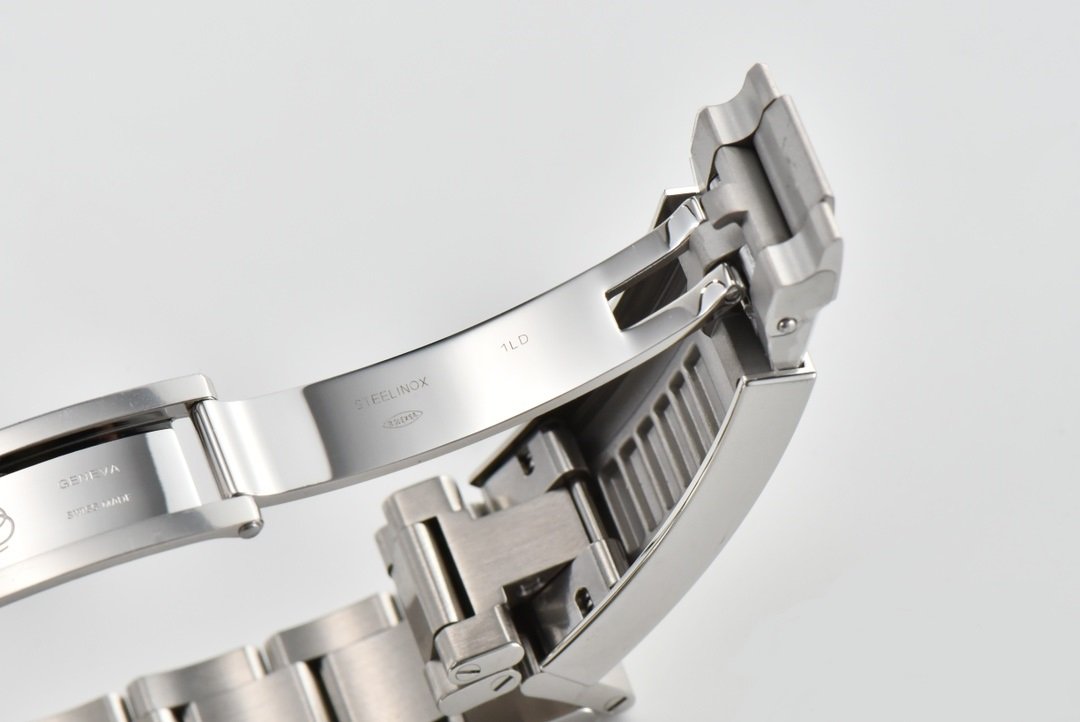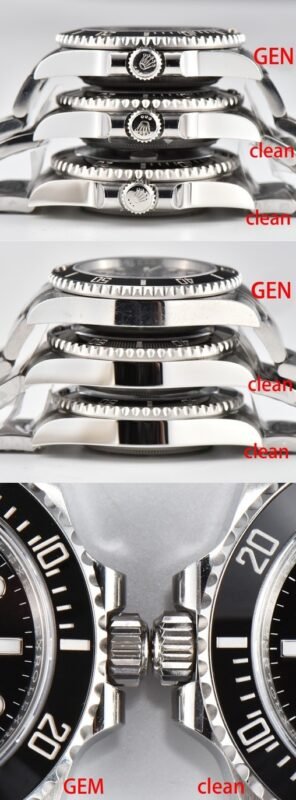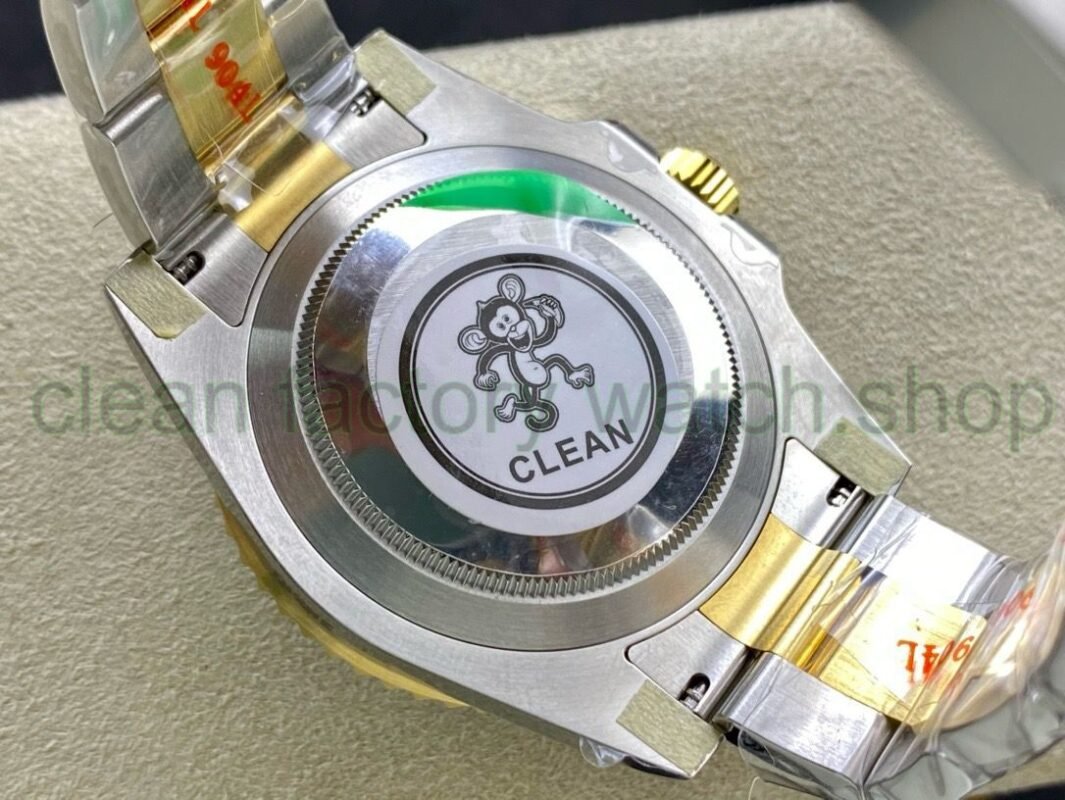Blog
Ticking Towards Sustainability: The Rise of Clean Factory Watches

Ticking Towards Sustainability: The Rise of Clean Factory Watches
In a world increasingly attuned to the rhythms of environmental consciousness, the ticking hands of timepieces are taking on a new importance.Gone are the days when a watch merely served as a tool for timekeeping; it has evolved into a symbol of style, ingenuity, and importantly, sustainability.the rise of clean factory watches marks a pivotal moment in the horological landscape, where craftsmanship meets eco-friendliness. These innovative timepieces not only showcase exquisite design and precision engineering but also reflect a commitment to reducing the carbon footprint and embracing ethical manufacturing practices. As consumers become more discerning about the impact of their purchases, the watch industry is responding with a wave of eco-conscious initiatives that align with the principles of sustainability. Join us as we explore the emergence of clean factory watches, a movement that promises to reshape our understanding of luxury in the twenty-first century, one tick at a time.
Table of Contents
- Exploring the Eco-Conscious Revolution in Timepiece Manufacturing
- Innovative Materials: redefining Watchmaking with Sustainability in Mind
- Ethical Practices: The Heart of clean Factory watch Production
- Future Trends: Navigating the Path Towards Sustainable Horology
- Q&A
- Key Takeaways
Exploring the Eco-Conscious Revolution in Timepiece Manufacturing
as consumers increasingly seek ethical and sustainable products, the timepiece industry has responded with a wave of innovation, creating a new standard for manufacturing. The concept of eco-conscious timepieces blends artistry with responsibility, leading manufacturers to adopt practices that prioritize the planet. some key initiatives transforming the sector include:
- Use of Recycled Materials: Brands are sourcing recycled metals and plastics, reducing waste and minimizing the need for virgin resources.
- carbon-neutral Manufacturing: Many companies are committing to carbon offset programs, ensuring that their production facilities do not contribute to greenhouse emissions.
- Sustainable Sourcing of Components: Ethical sourcing of materials, such as conflict-free gemstones and responsibly harvested woods, is now a common practice.
These timepieces do not simply focus on their environmental impact; they also embrace clarity and storytelling.Consumers are becoming more aware of the provenance of their watches, desiring not just a product, but a narrative woven into every tick.The rise of clean factory watches not only prioritizes sustainability but also encourages a new movement in craftsmanship.Noteworthy changes include:
| brand | Eco-Initiative |
|---|---|
| time For Earth | 100% recycled stainless steel |
| EcoQuartz | Solar-powered movements |
| Green Tick | Plant-based biodegradable straps |
In this evolving landscape, the modern watch enthusiast finds a plethora of options that align with values of environmental stewardship without sacrificing style or functionality.
Innovative Materials: Redefining Watchmaking with Sustainability in Mind
The watchmaking industry is experiencing a transformative shift as innovative materials take center stage, merging tradition with sustainability in exciting new ways.Brands are increasingly opting for recycled metals,biodegradable straps,and eco-amiable alternatives to conventional watch components,marking a important departure from practices that prioritize profit over environmental impact. For instance,using materials such as marine plastic not only presents a unique aesthetic but also highlights the brand’s commitment to cleaning our oceans. By integrating these materials into their designs, watchmakers are crafting timepieces that tell a story beyond mere functionality; they echo a new era of conscious consumerism.
In this brave new world of watchmaking, the connection between craftsmanship and ecological responsibility is becoming more tangible.Many brands now showcase their dedication by providing obvious details about their sourcing and production processes. This move not only resonates with environmentally-conscious customers but also sets a benchmark for future innovations. Key initiatives include:
- Carbon-neutral production: ensuring that manufacturing processes have a minimal carbon footprint.
- Component traceability: Allowing customers to understand where each element of their watch originates.
- Longevity-focused designs: Creating watches that can be repaired and maintained for years, reducing waste.
Ethical Practices: The Heart of Clean Factory Watch Production
At the core of the clean factory watch movement lies a commitment to ethical practices that is reshaping the horology landscape. Innovations in sustainable sourcing and production are no longer just optional, but rather vital components of a brand’s identity. By prioritizing the use of sustainable materials,watchmakers are ensuring that their timepieces are not only visually stunning but also environmentally responsible. This includes the use of recycled metals, ethically mined gems, and eco-friendly packaging that reduces waste. In adopting these practices, manufacturers not only enhance their brand perception but also contribute to the preservation of our planet.
Moreover, transparency in the supply chain plays a crucial role in fostering consumer trust in clean factory watches. Companies are now publicly disclosing their sourcing strategies and manufacturing processes, allowing consumers to make informed decisions. Key ethical practices include:
- fair Labour Standards: Ensuring that all workers are treated with dignity and compensated fairly.
- Carbon Neutrality: Committing to offsetting emissions through renewable energy initiatives.
- Community Engagement: Supporting local communities through education and development projects.
This holistic approach not only drives social responsibility but also enhances the overall quality and longevity of the products, making clean factory watches a true reflection of both craftsmanship and conscience.
Future trends: Navigating the path Towards Sustainable Horology
The landscape of horology is undergoing a profound change as artisans and consumers alike prioritize sustainability in their choices. With an increasing awareness of environmental impact, the watchmaking industry is pivoting towards clean factory practices. This movement emphasizes the reduction of waste, the use of renewable materials, and ethical sourcing of components. In this context, manufacturers are harnessing innovative technologies that minimize carbon footprints while maximizing efficiency.Moreover, the shift to circular economy principles ensures that timepieces can be easily recycled or repurposed, fostering a sense of responsibility among consumers who wish to contribute to a more sustainable future.
As we look ahead, the integration of advanced technology into sustainable production methods is likely to redefine the attributes of premium horology. Key trends to watch include:
- Solar-Powered Movements: Harnessing solar energy to power timepieces will become increasingly common, reducing reliance on traditional battery sources.
- Biodegradable Materials: The introduction of materials like bio-resins and sustainably sourced wood is set to replace traditional plastics and metals.
- Traceable Supply Chains: Enhanced transparency in sourcing practices will enable consumers to understand the origins of their watches and support ethical production.
To further illustrate this shift, here is a comparative overview of traditional vs. sustainable watchmaking practices:
| Aspect | Traditional Practices | Sustainable Practices |
|---|---|---|
| Materials Used | Non-recyclable metals and plastics | Recycled and biodegradable materials |
| energy Consumption | High energy costs | Renewable energy sources |
| End-of-Life Options | Landfill disposal | Recycling and upcycling initiatives |
Q&A
Q: What are clean factory watches,and why are they gaining attention?
A: Clean factory watches are timepieces produced in facilities that prioritize sustainability and ethical practices. They focus on minimizing environmental impact through eco-friendly materials, energy-efficient manufacturing processes, and fair labor practices. With a growing consumer interest in sustainability, these watches are becoming preferable choices for environmentally-conscious buyers.
Q: How do clean factory watches differ from traditional timepieces?
A: Unlike traditional watches that may rely on unsustainable materials and practices, clean factory watches integrate eco-friendly elements throughout their production. This includes the use of recycled metals, ethical sourcing of components, and manufacturing in factories powered by renewable energy. This conscientious approach sets them apart in the horological landscape and reflects a larger shift towards sustainability in various industries.
Q: What materials are commonly used in clean factory watches?
A: Clean factory watches frequently enough utilize materials such as recycled stainless steel, sustainably-sourced wood, or biodegradable alternatives for straps. Some brands are even experimenting with vegan leather or innovative bio-materials derived from plants. This commitment to using eco-conscious materials not only contributes to reducing waste but also resonates with consumers looking for environmentally friendly products.
Q: Are clean factory watches just a passing trend?
A: While trends can come and go, the emphasis on sustainability within the watchmaking industry appears to be a fundamental shift rather than a fleeting trend. As more consumers prioritize ethical consumption and manufacturers adopt sustainable practices,clean factory watches are likely to remain relevant. This movement reflects a broader commitment to environmental stewardship across consumer goods.
Q: What impact do clean factory watches have on the surroundings?
A: The production of clean factory watches aims to mitigate the environmental impact associated with traditional watch manufacturing. By prioritizing renewable resources, reducing waste, and implementing sustainable practices, these watches contribute to lower carbon footprints. Ultimately, they promote a more responsible and sustainable approach to luxury and craftsmanship in the watch industry.
Q: How can consumers identify truly sustainable watches amidst marketing claims?
A: To discern genuine sustainability claims, consumers should look for transparent certifications and labels that indicate eco-friendly practices, such as Fair Trade or ISO 14001 for environmental management. Researching the brand’s production process, supply chain transparency, and the materials used can also provide insights into their sustainability efforts. Engaging with online reviews, blogs, or documentaries focusing on sustainable brands can further guide informed purchasing decisions.
Q: What role do watchmakers play in advancing sustainability?
A: Watchmakers are vital in pushing the envelope on sustainability. By adopting innovative technologies and collaborating with environmental organizations, they can set benchmarks for responsible production. As they share their sustainability goals and accomplishments with the public, they not only encourage consumer awareness but also inspire othre industries to adopt similar practices, fostering a collective movement toward a greener future.
Q: What can we expect for the future of clean factory watches?
A: The future of clean factory watches looks promising as consumers increasingly demand transparency and sustainability. As technology advances, it is likely we will see further innovations in eco-friendly materials and manufacturing methods. Additionally, collaboration among brands, nonprofits, and governments may lead to enhanced regulations and standards, further solidifying the place of clean factory watches in the luxury market and paving the way for a more sustainable watchmaking future.
Key Takeaways
As we wind down our exploration of clean factory watches, it’s evident that the movement towards sustainability is not just a fleeting trend but a notable shift in how we perceive luxury and craftsmanship. These timepieces symbolize more than just the passage of time; they encapsulate a commitment to our planet and a newfound awareness of our consumption habits. As brands continue to innovate and prioritize environmental responsibility, the ticking hands of these watches serve as a reminder of our collective responsibility to foster a sustainable future. Whether you are a seasoned collector or a casual enthusiast,embracing the rise of clean factory watches is an opportunity to align your choices with a vision that honors both craftsmanship and ecological integrity. Time is indeed precious—let’s ensure it moves in a direction that benefits us all.

